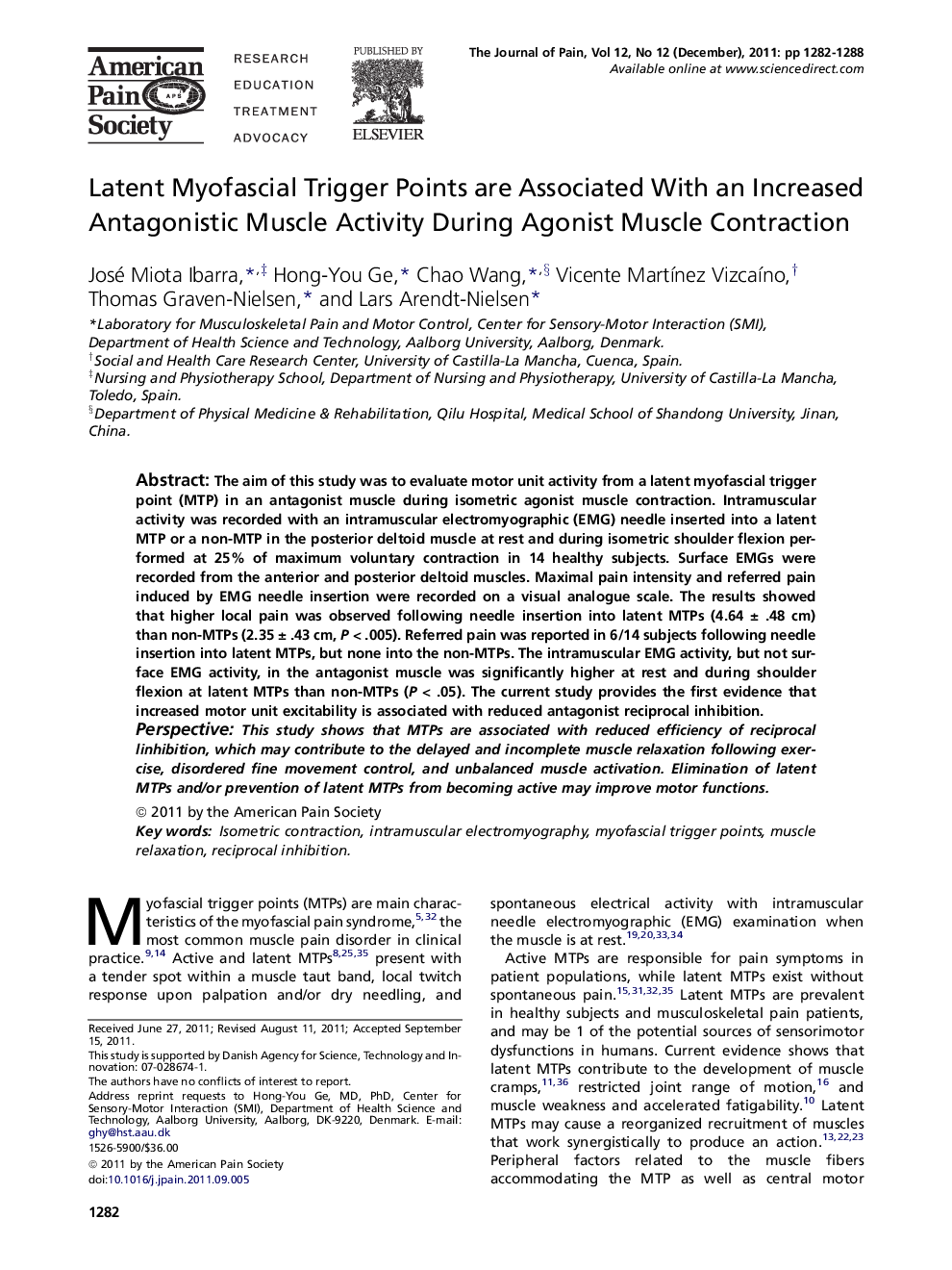| کد مقاله | کد نشریه | سال انتشار | مقاله انگلیسی | نسخه تمام متن |
|---|---|---|---|---|
| 2728973 | 1566779 | 2011 | 7 صفحه PDF | دانلود رایگان |

The aim of this study was to evaluate motor unit activity from a latent myofascial trigger point (MTP) in an antagonist muscle during isometric agonist muscle contraction. Intramuscular activity was recorded with an intramuscular electromyographic (EMG) needle inserted into a latent MTP or a non-MTP in the posterior deltoid muscle at rest and during isometric shoulder flexion performed at 25% of maximum voluntary contraction in 14 healthy subjects. Surface EMGs were recorded from the anterior and posterior deltoid muscles. Maximal pain intensity and referred pain induced by EMG needle insertion were recorded on a visual analogue scale. The results showed that higher local pain was observed following needle insertion into latent MTPs (4.64 ± .48 cm) than non-MTPs (2.35 ± .43 cm, P < .005). Referred pain was reported in 6/14 subjects following needle insertion into latent MTPs, but none into the non-MTPs. The intramuscular EMG activity, but not surface EMG activity, in the antagonist muscle was significantly higher at rest and during shoulder flexion at latent MTPs than non-MTPs (P < .05). The current study provides the first evidence that increased motor unit excitability is associated with reduced antagonist reciprocal inhibition.PerspectiveThis study shows that MTPs are associated with reduced efficiency of reciprocal linhibition, which may contribute to the delayed and incomplete muscle relaxation following exercise, disordered fine movement control, and unbalanced muscle activation. Elimination of latent MTPs and/or prevention of latent MTPs from becoming active may improve motor functions.
Journal: The Journal of Pain - Volume 12, Issue 12, December 2011, Pages 1282–1288